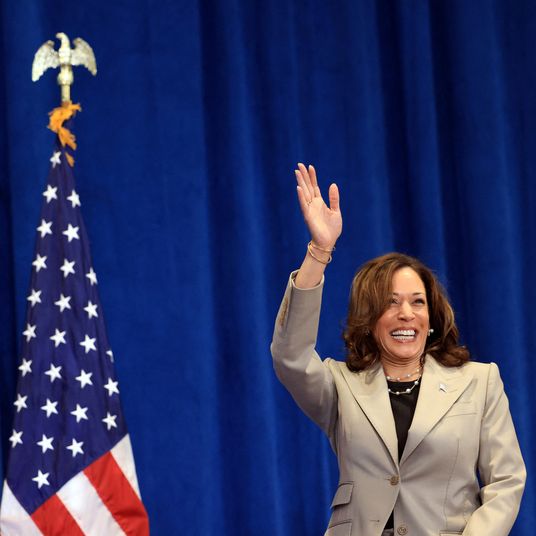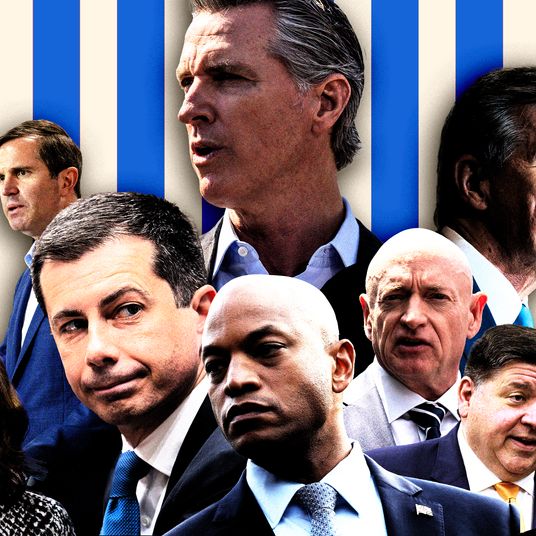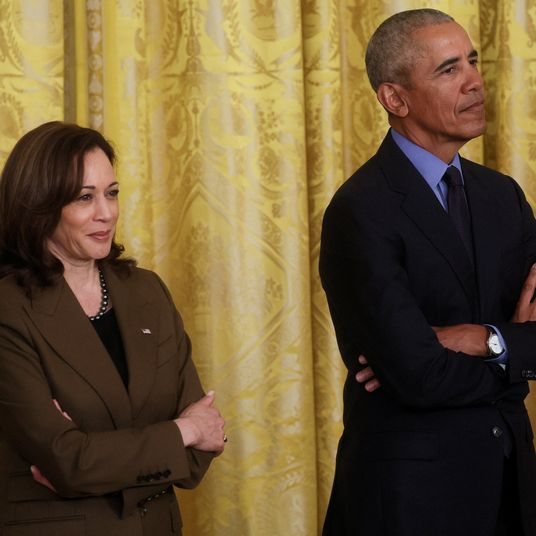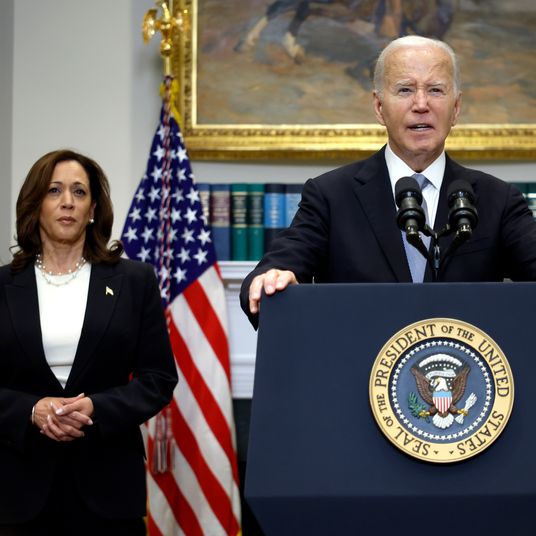
It feels like some kind of divine punishment that the richest man on the planet is also its most immature. Elon Musk — an oligarch responsible for overseeing several major companies and, perhaps most troubling, the lives of his seven children — has the emotional capacity of an 8-year-old boy attempting his first prank phone call. Dishing out jokes on Twitter, Musk is stunningly unfunny, his comedy seemingly generated by a faulty AI. “Due to inflation 420 has gone up by 69,” read one of his recent gut busters.
With no end to his wealth, or to the number of Tesla and SpaceX fanatics filling up his mentions with mindless praise, he can afford to be as dumb online as he wants to be. And as reckless, too: In the past ten days he has started fights with Democratic senators Ron Wyden and Bernie Sanders, both of whom he has treated with about the same amount of respect as the Thai cave rescuer he called a “pedo.”
This is all chum for his relentlessly devoted fans, who see Musk as the great populist techno-king, and a middle finger to Democratic politicians and other critics who think no one should have his kind of power. It’s a testament to our cursed times that Musk is almost assuredly going to get the last laugh.
The subject of his antics this time around is taxes and how much should be paid by billionaires like him; his spectacular fortune of about $280 billion is tied to his 17 percent stake in Tesla, the world’s most valuable automaker. Recently, Musk ran a poll for his 63 million Twitter followers. “Much is made lately of unrealized gains being a means of tax avoidance, so I propose selling 10% of my Tesla stock,” tweeted Musk. “Do you support this?”
A majority of respondents voted yes, but it wasn’t hard to be annoyed by the notion that taming billionaire wealth — which is to say, billionaire power — would be casually decided on social media. One of the aggrieved was Wyden, an influential voice on privacy, tech, and national security issues who happens to sit on Congress’s joint committee on taxation. Wyden quote-tweeted Musk, adding, “Whether or not the world’s wealthiest man pays any taxes at all shouldn’t depend on the results of a Twitter poll. It’s time for the Billionaires Income Tax.” Having found someone notable enough to take his bait, Musk responded, “Why does ur [profile picture] look like u just came?” For Musk and his sophomoric posse of millions, it was an epic clapback. Seventeen thousand retweets, 98,000 likes, and plenty of news coverage (including articles like this one): The metrics don’t lie.
The fun spilled into this week as Sanders, whose views on wealth inequality are well established, posted some rather anodyne calls for billionaires to pay more in taxes. “I keep forgetting that you’re still alive,” Musk tweeted in reply.
The important thing to keep in mind about Musk’s impetuous trolling is it’s all a sideshow. He will never have much that’s thoughtful, or even honest, to say about wealth or taxes or how one contributes to society. In Musk’s messianic vision, his job is to do whatever he wants, which currently means using his nation-state-level resources “to get humanity to Mars and preserve the light of consciousness.”
In the meantime, down here on terra firma, Musk is free to provoke regulators, wear his human workforce down to a nub, pay nine-figure fines in discrimination suits, use Tesla customers as guinea pigs for autopilot and self-driving software, and act like an ass on Twitter. Past clashes with the Securities and Exchange Commission over his social-media use — such as when Musk suggested he would take the company private at $420 per share (get it???) — have seemingly done little to prompt circumspection. (This is, after all, the guy who made a car that can emit fart noises on command.) JPMorgan Chase this week sued Tesla over Musk’s 420-themed tweets, which the bank says breached an agreement tied to the carmaker’s stock price, for $162 million — less than a tenth of a percent of Musk’s personal wealth.
As for putting his stock sales to a public vote, it’s another red herring. Under a plan established in September, Musk was already on track to sell billions of dollars worth of Tesla shares to pay for taxes on stock options he had been previously awarded. Musk, who moved to Texas in part because the state has no income tax, may find himself forced to sell more shares as yet more stock options expire in August 2022. Whether he eventually pays a few billion dollars in taxes on stock sales or tens of billions more through some billionaires tax that’s unlikely to be passed, he will still be staggeringly rich and surrounded by an army of digital sycophants cheering his every move.
In a way, Musk’s trumped-up Twitter conflicts are clarifying. They reveal how little will be solved by online debate and how the tech mogul can toy with his ever-loyal audience by implying that they have some say in how he manages his profound wealth. The problems with the resources and power Musk has accumulated will not be solved with stupid jokes, angry rhetoric, or dunking on him by posting his infamous photo with Ghislaine Maxwell. There is no way to “own” Musk online or to make him feel shame or even, given the iron law of internet publicity, to talk about him without giving him a bit of what he wants. According to Musk, he is here to save the planet by becoming so rich that he can lead an exodus to Mars. For anyone with any knowledge of conditions on Mars — or the urgency of ameliorating easier-to-solve issues here on Earth — the plan sounds absolutely ridiculous. But Musk will continue to do what he wants until the political forces ostensibly governing our society do something meaningful to stop him. For now, they tweet.




























